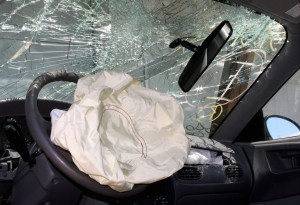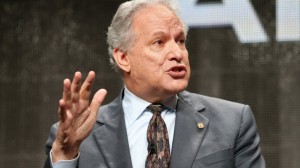With millions of American motorists routinely ignoring recall notices despite the potentially deadly risks, automakers are looking for ways to increase repair rates, and turning to an unexpected ally.
An auto industry trade group is asking the insurance industry to remind motorists to check to see if their cars are subject to recalls whenever it’s time to renew their policies. Under pressure from regulators and safety advocates, automakers have also been trying other strategies that have, in some instances, included offering owners gift cards if they respond to outstanding recalls.
The problem is considered serious and only growing worse – highlighted by the March 31st death of a Texas high school senior whose 2002 Honda was fitted with a defective Takata airbag. She was killed by flying shrapnel in what authorities said was an otherwise modest collision. The vehicle had not been repaired despite Honda’s claim that it had previously sent out six recall notices.
A recent study by CarFax, a vehicle tracking service, estimated there are 47 million vehicles on U.S. roads that have at least one safety defect covered by a recall that was never repaired. Two years ago, CarFax pegged the number at 30 million. That reflects the recent surge in safety related problems that saw recalls hit record levels of 63.9 million in 2014, and top 51 million last year.
Even the most serious problems typically see a response rate of no more than 75%, according to the National Highway Traffic Safety Administration, and that dips as low as 30% for some supposedly minor recalls. But “even the most minor issue can be deadly,” said Clarence Ditlow, director of the Washington-based Center for Auto Safety.
The problem isn’t always the consumer. A shortage of replacement parts has been one of the reasons why less than 28% of the 24 million vehicles covered by the Takata airbag recall have so far been fixed.
Another factor is that many recent recalls involve older vehicles that might have been resold several times, complicating efforts to reach owners with recall notices. The family of Huma Hanif, the 17-year-old girl killed in the March 31 Texas crash, said they never saw one of the recall advisories.
(For more on the latest fatal Takata airbag crash, Click Here.)
NHTSA is pressing the auto industry to do more, Administrator Mark Rosekind telling the industry it can do “a huge amount” to improve owner response rates. Congress stepped into the debate last December when it approved a measure that requires daily rental companies to pull recalled vehicles from their fleets until repairs are made.
Efforts to have used car dealers take similar steps have so far been rebuffed – though the giant auto retail chain AutoNation took that step unilaterally last year, despite strong criticism from other dealers.
(Feds may target another 85 million Takata airbags for recall. Click Here for the latest.)
Congress did approve a pilot last year allowing up to six states to study programs that could eventually force motorists to get recalled vehicles fixed before they could be registered.
In the meantime, the Alliance of Automobile Manufacturers, a trade group representing some of the industry’s biggest makers, is asking the insurance industry to help out.
A letter sent to the CEOs of major insurers including Progressive, Nationwide and State Farm asks for their “assistance in establishing a new way to provide vehicle owners with information about any open safety recalls that may affect their car or truck and to urge that owners have the recall work performed as soon as possible.”
The auto industry is betting there is common ground that would motivate insurers to act, since unrepaired vehicles could be more prone to crash or involve injuries and fatalities in the event of an accident.
According to Russ Rader, a spokesman for the Insurance Institute for Highway Safety, NHTSA and Takata previously reached out for assistance, and the subject was discussed among insurance industry officials last September. “A number of insurance companies have talked about what they might do,” and some said they would “consider” various options, according to Rader, but he said it is not clear what, if anything has actually been done. TheDetroitBureau.com has not yet received a response from several insurance companies it has reached out to.
(Carmakers need to be alert to the threat of terrorists hijacking high-tech vehicles, warns Justice Dept. official. Click Here for more.)



